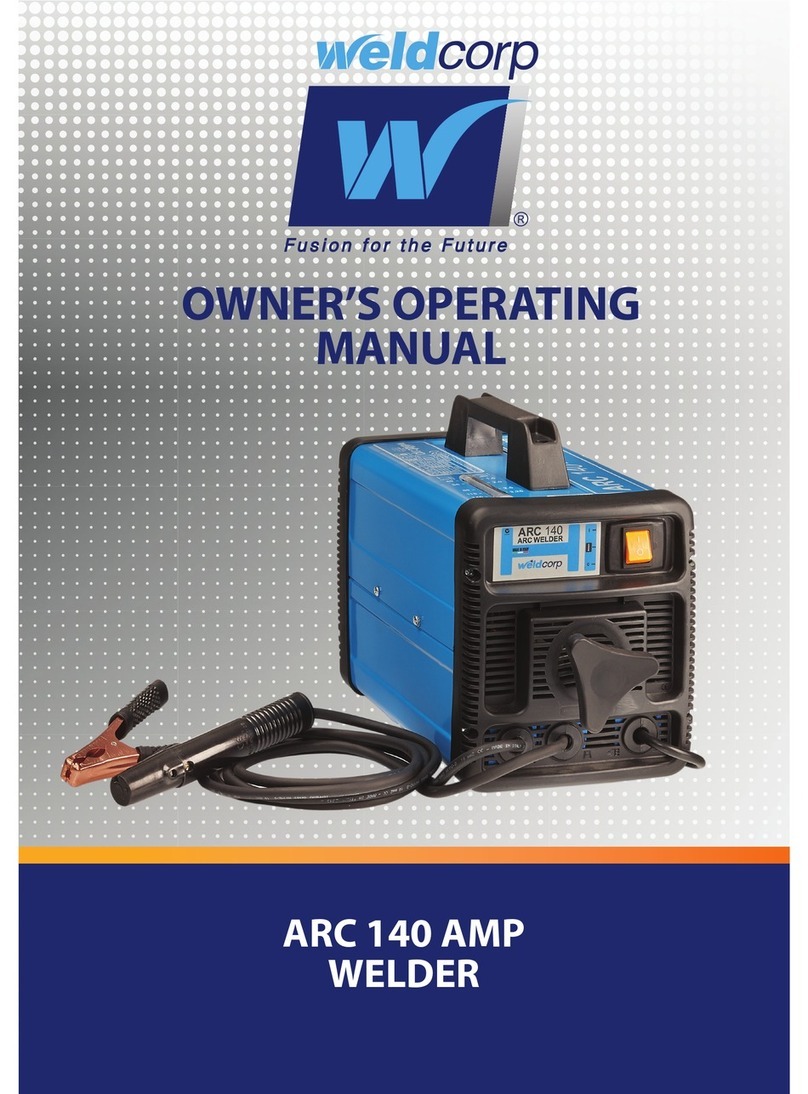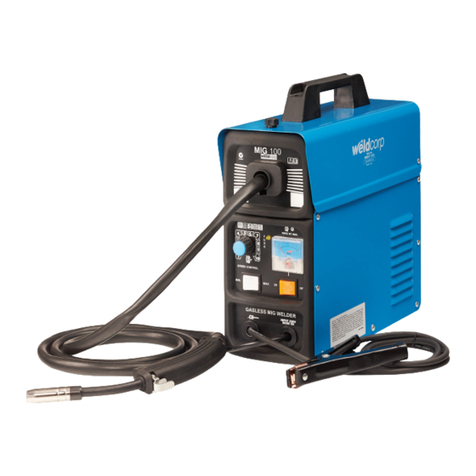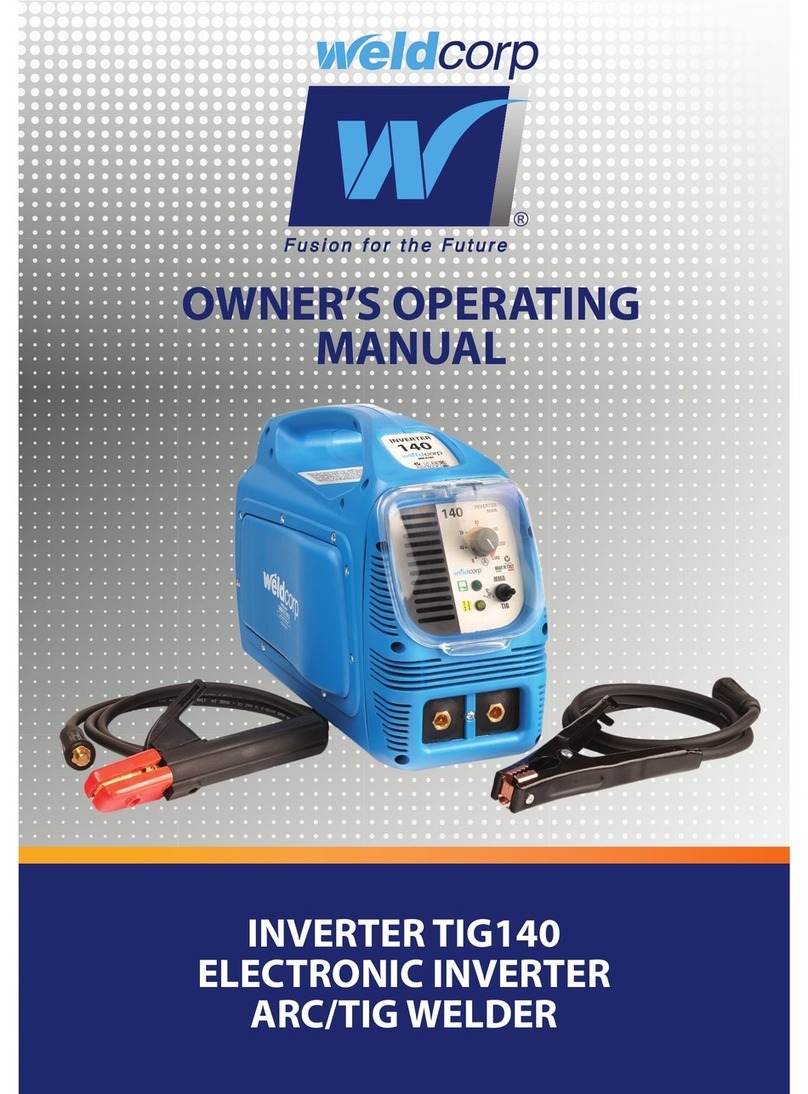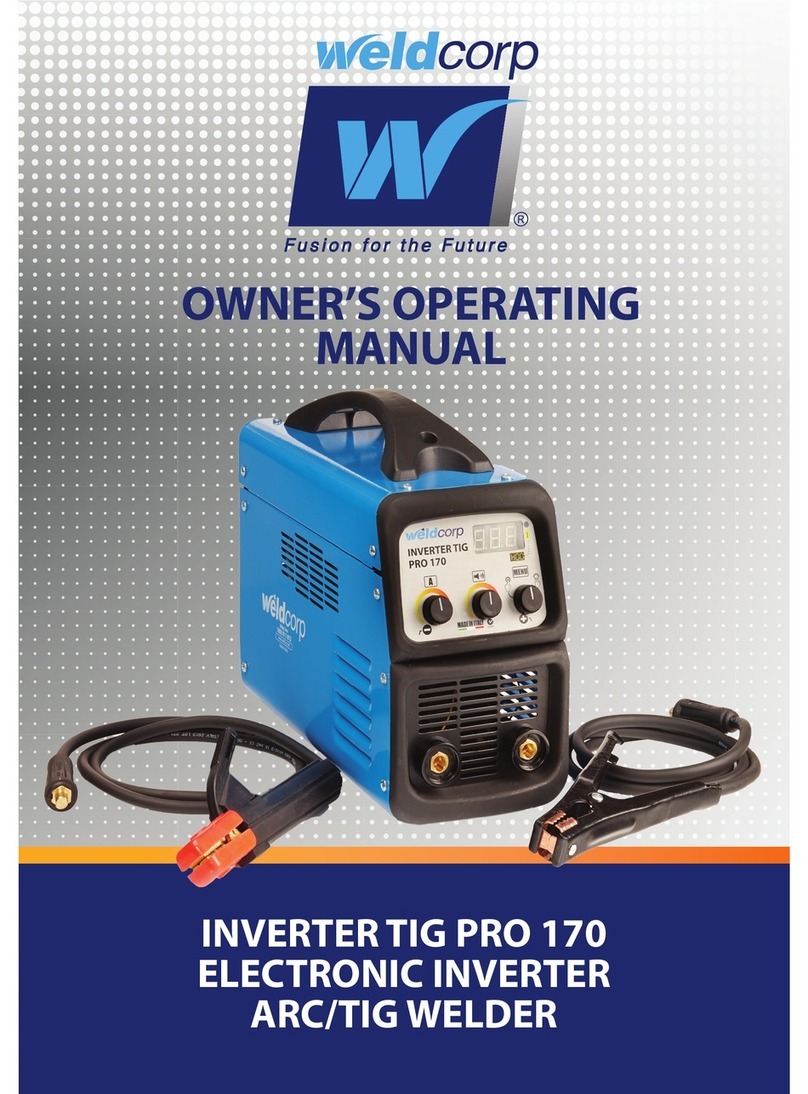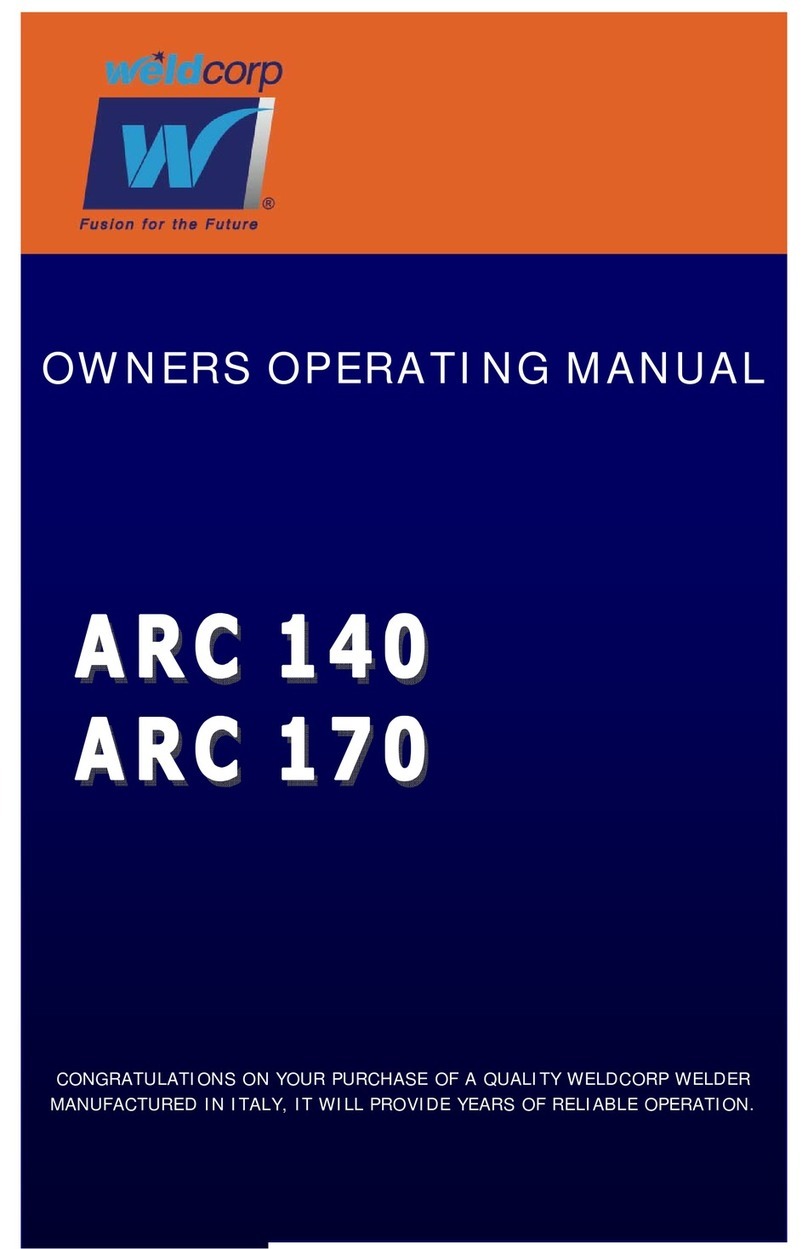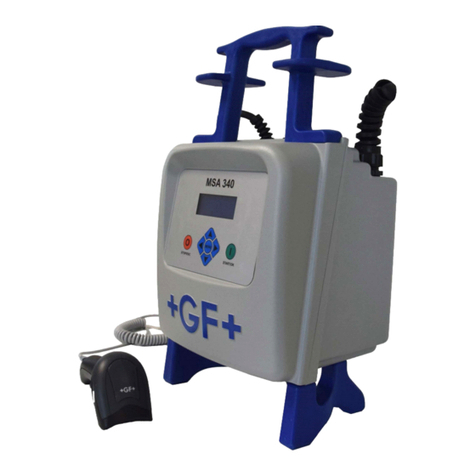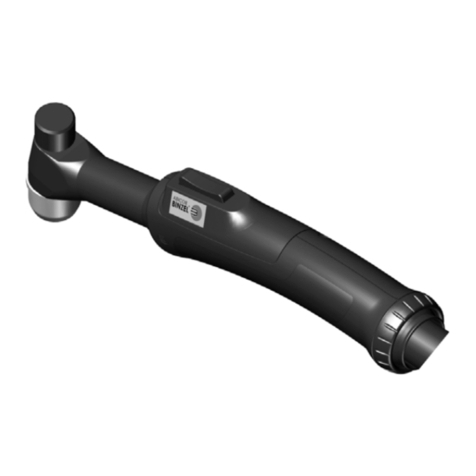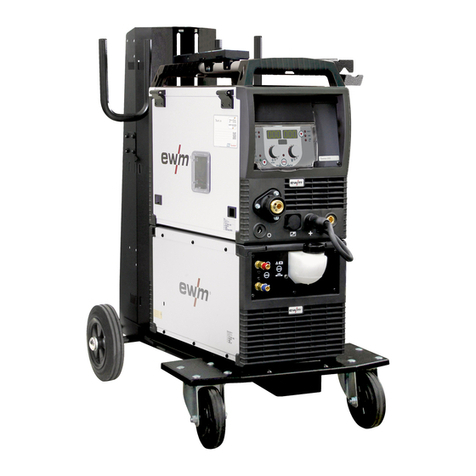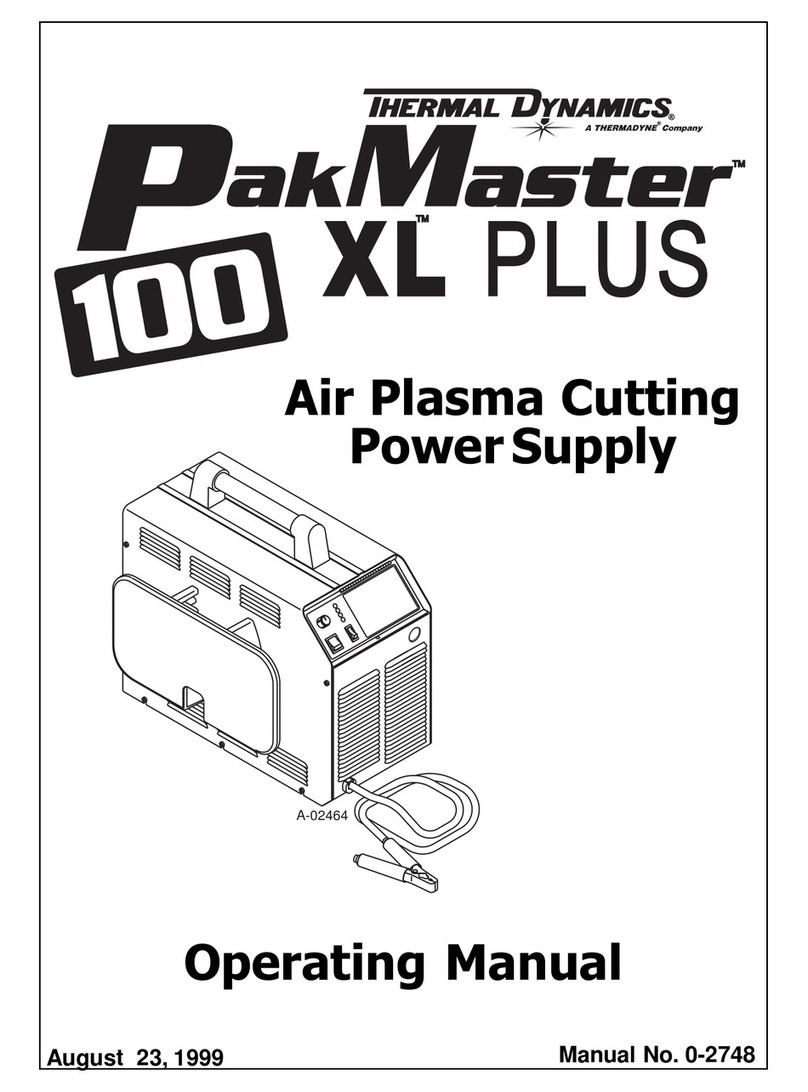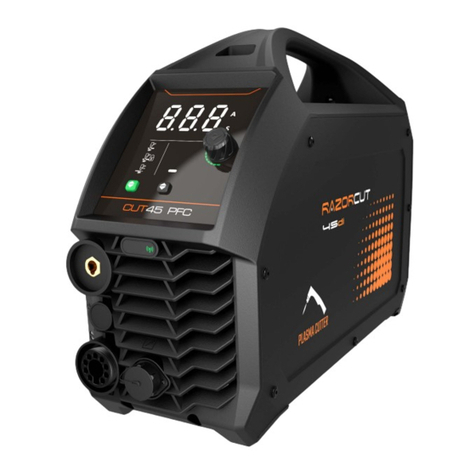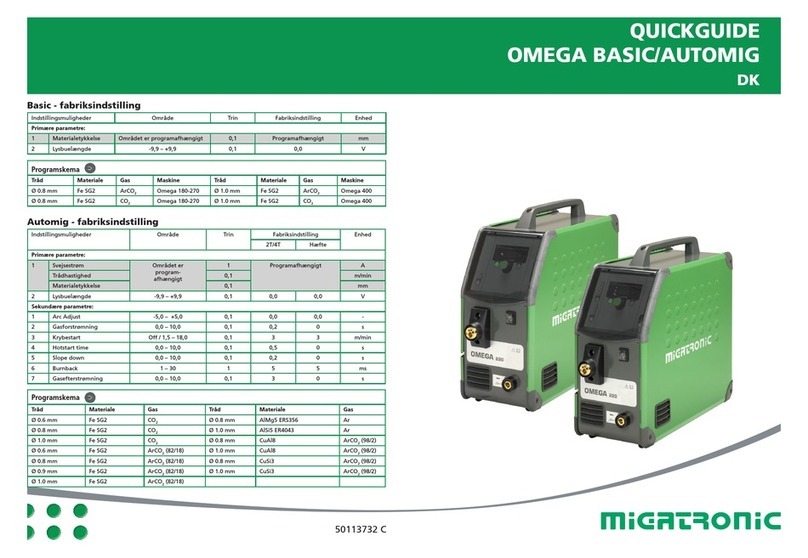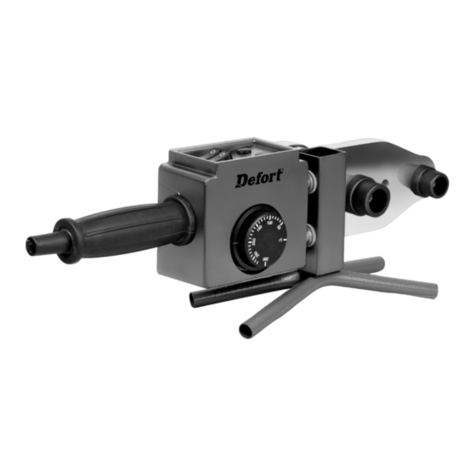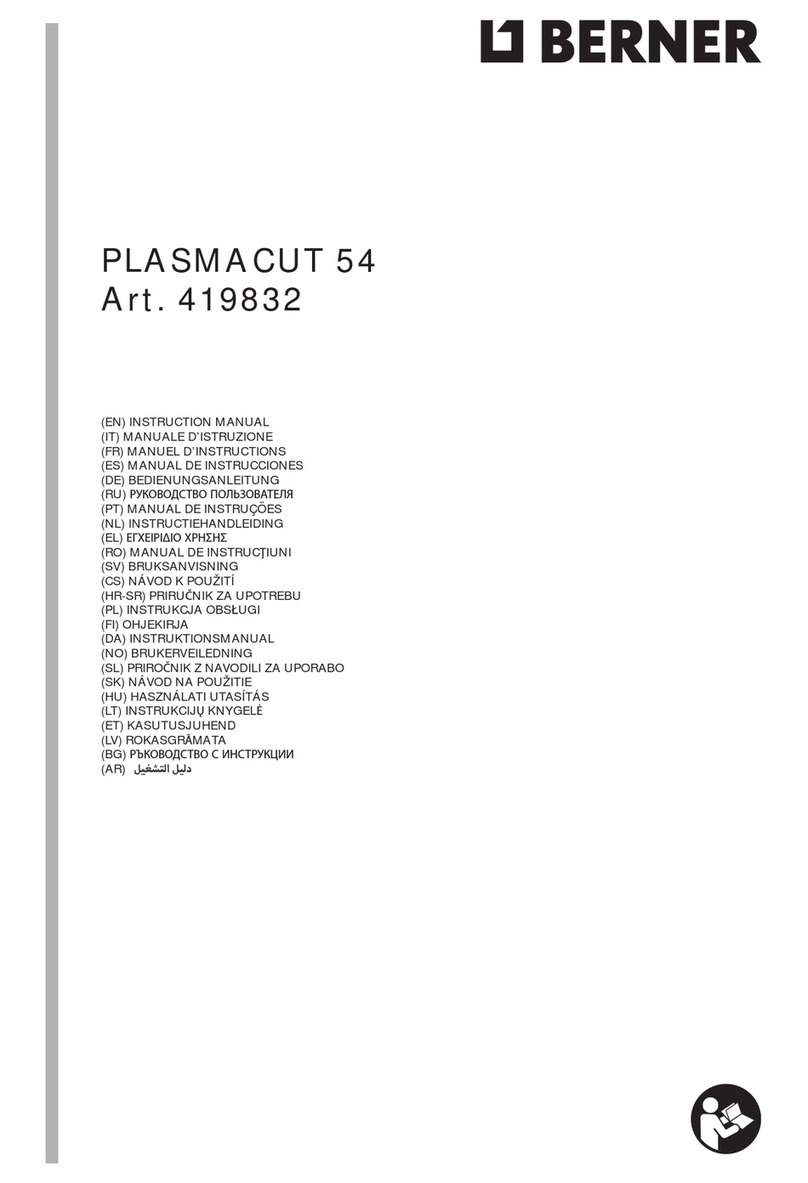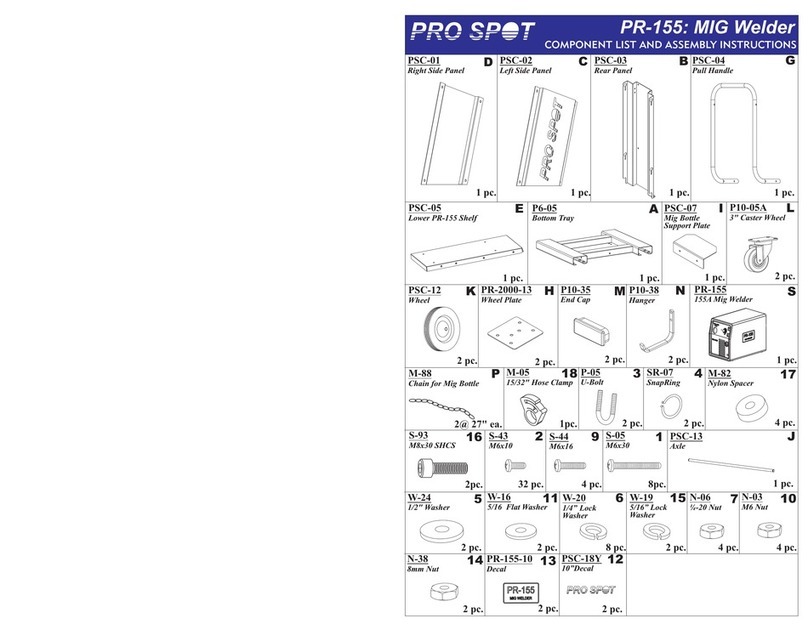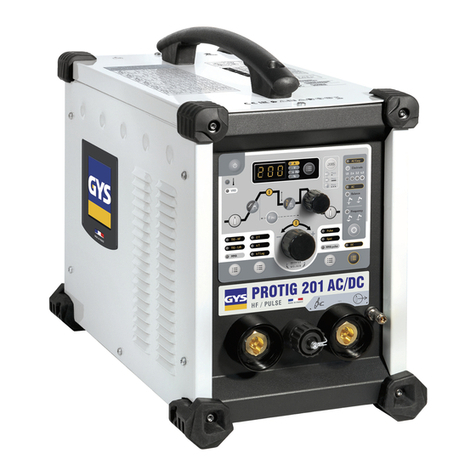
Page 5
SECURE WORK: Use clamps or a vice whenever possible to secure
work.
DON’T OVERREACH: Keep proper footing and balance at all times.
DRESS PROPERLY: DO NOT wear loose clothing or jewellery. They
can be caught in moving parts. Wear protective hair covering to
cover long hair, and gloves and non-slip footwear is recom-
mended when working outdoors.
TAKE CARE OF CABLES: Never carry welding equipment by the
cable and never pull the cable to disconnect it from a socket.
Keep cables away from heat, oil and sharp edges. Replace dam-
aged cables.
DISCONNECT TOOLS: Disconnect welding equipment when not in
use, before servicing, and when changing accessories such as
blades, bits and cutters.
AVOID UNINTENTIONAL OPERATION: Don’t carry plugged in weld-
ing equipment with a finger on the switch. Be sure that the
switch is off when plugging in.
OUTDOOR USE EXTENSION CABLES: When electric power equip-
ment is used outdoors, only use extension cables marked as suit-
able for outdoor use.
STAY ALERT: Watch what you are doing. Use common sense. Do
not operate welders when you are tired or under the influence of
alcohol or drugs.
CHECK DAMAGED PARTS: Before using welding equipment, parts
that are damaged should be carefully checked to determine that
they will operate properly and perform their intended function.
Any part that is damaged should be properly repaired or replaced
by an authorized service agent. Have defect switches replaced by
an authorized repair agent. Do not operate power equipment if it
cannot be turned off and on by the switch.
REPAIR OF POWER EQUIPMENT BY EXPERTS: Power equipment is
built in accordance with relevant safety authority requirements.
The repair of power equipment must only be carried out by ex-
perts; non-expert repairs may cause considerable danger for the
user and void warranty.
